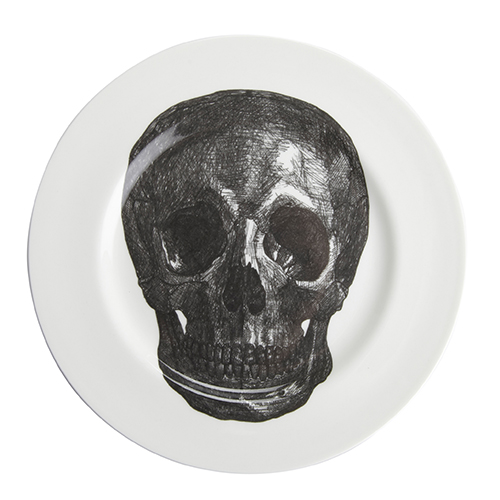Julius Caesar
Julius Caesar opens with the tribunes (the elected representatives of the people) reproaching the commoners for celebrating Caesar’s victory over Pompey the Great in the recent civil war. We later learn the tribunes are condemned to death for their actions. At the festival of Lupercal, a fortune-teller advises Caesar to beware of a specific date, the Ides of March. Meanwhile, the conspirator Cassius and Caesar’s friend Brutus nervously discuss how Caesar is amassing more power than is healthy in a republic. Brutus reluctantly agrees with Cassius’s plan to assassinate Caesar as the only way to avoid tyranny. Brutus’s wife, Portia, tries to persuade him to explain what is going on, showing him a self-inflicted wound on her leg as proof of her equality to men in fearlessness and resolve. Caesar goes to the Capitol, despite the warning of his wife, Calphurnia, where the fortune-teller reminds him the Ides of March are not yet over. He is stabbed by all of the conspirators – Brutus last.
Brutus, against Cassius’s advice, agrees to let Mark Antony speak after him at the funeral. Brutus’s speech initially pursuades the crowd with the argument that Caesar had to die for the sake of the Republic, but Antony reminds the people of Caesar’s virtues, shows them his corpse and reads Caesar’s will, which leaves his money and private gardens to the people. Antony’s speech provokes a riot that turns into civil war. Brutus is visited by Caesar’s ghost on the eve of the Battle of Philippi. Cassius and Brutus are defeated in battle the next day and have their followers help them commit suicide. Antony and Octavius (Julius Caesar’s nephew) distinguish Brutus from the other conspirators, reflecting that his motives had been honourable.
Click here for a short PDF summary of the sources relating to Julius Caesar from 'Discovering Literature: Shakespeare'.
- Creator:
- William Shakespeare
- Published:
- 1623 (F1)
- Forms:
- Play
- Genre:
- Renaissance Drama
- Literary period:
- Renaissance
This work is featured in:
Explore further
Related articles
Ghosts in Shakespeare
- Article by:
- John Mullan
- Theme:
- Context
John Mullan explains the position of ghosts in Elizabethan and Jacobean culture, and shows how the ghosts in Shakespeare's plays relate to and boldly depart from ghostly representations in other drama of the period.
Republicanism and assassination in Julius Caesar
- Article by:
- Malcolm Hebron
- Theme:
- Tragedies
Malcolm Hebron situates Julius Caesar in the context of Shakespeare's life and times, examining the contemporary political relevance of the play's themes of Republicanism and assassination. He explores the play's use of rhetoric and theatricality, and assesses its reception over the past 400 years.
Rhetoric, power and persuasion in Julius Caesar
- Article by:
- Kim Ballard
- Theme:
- Tragedies
Rhetoric was a much-valued skill in Renaissance England, as it was in ancient Rome. Kim Ballard discusses the connections between rhetoric and power in Julius Caesar, one of Shakespeare's Roman plays.
Related collection items
Related people
Related works
A Midsummer Night’s Dream
Created by: William ShakespeareA Midsummer Night’s Dream opens with Theseus, Duke of Athens, eagerly anticipating his marriage to Hippolyta, ...
Coriolanus
Created by: William ShakespeareCoriolanus is a tragedy following the fortunes of Caius Martius: a Roman general distinguished in the field of ...
Hamlet
Created by: William ShakespeareHamlet opens after the death of King Hamlet. His brother has succeeded him to the throne and quickly married the ...
King Lear
Created by: William ShakespeareKing Lear is a tragedy based on the chronicle history of a pre-Roman, Celtic king of Britain. In Shakespeare’s ...





Share this page
Please consider the environment before printing